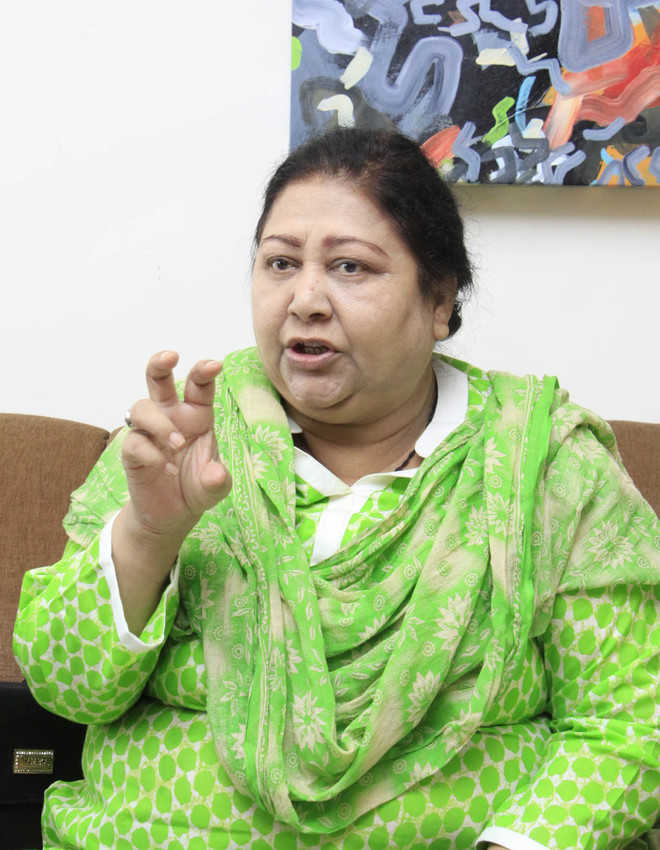Shayari holds less recognition in literature, says poetess
Avneet Kaur
Jalandhar, March 10
Mai use zindagi sounp kar uske angan ki baandi rhi, mujhko do rotia de ke wo yeh samjhta hai rabb ho gya (Having given my life to him, I became a servant of his court, but by giving me two pieces of bread a day, he claims lordship over me) having recited these couplets, Lucknow-based Naseem Nikhat, the famous poetess, recalled her initial days of fame. She said, “These couplets made me universally popular and still remain a favourite with the audience. This depicts the situation of women in the old times when they were restricted to the four walls of their home and were not any less than slaves.”
Naseem Nikhat, who was in city on the occasion of International Women’s Day, to attend Sham-e-Sukhan, a cultural evening, at the Apeejay College, while interacting with the Jalandhar Tribune stressed the importance of ‘mushairas’ in playing a role in maintaining communal harmony in the country and also its popularity among youth.
She said, “The roots of our country are embedded in our ekta (oneness) and making the dais their platform for social reforms, poets should work towards maintaining the spirit of oneness in the nation. Those who work against this are weakening the very roots of our unity and our culture. We should not write shayari which fans intolerance, or gives rise to hatred. Such poetry should be shunned.”
Sharing her journey, Nikhat said she started doing shayari and writing poetries in 1980’s. “Since my childhood, I had a keen interest in shayari. I never had “parda” (Veil) as I always wanted to bring reforms in society through my shayaris. When I was 7 or 8, I had already participated in various shayari events known as ‘Baitbazi’ without letting my family know.”
“The message of love and acceptance should be sent forth to the world and poets hold great responsibility for this,” she added. The amazingly rich canvas of Urdu poetry usually leaves audience feeling enriched and thoughtful but it is disappointing to see that “shayari” holds no recognition in literature. It is very rare if you find any poet or poetess having their shayaris in literatures, she lamented.
“Today majority of Indian students have great interest in urdu shayari but no one wants to adopt it as profession because it doesn’t offer great earning,” she said.
It is prominent to mention here that poetess Naseem Nikhat w has written seven books, a PHD thesis, won a number of International and National awards.










